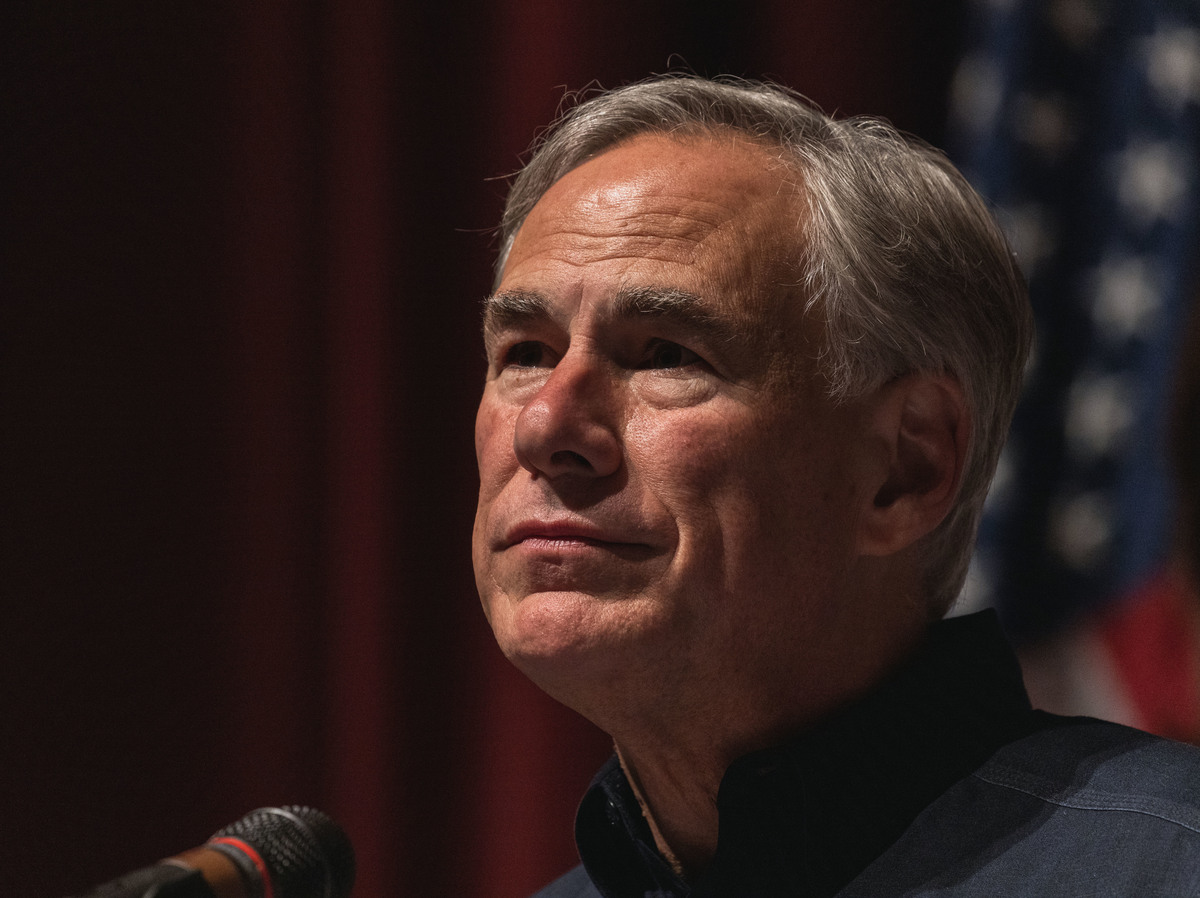

Texas Gov. Greg Abbott speaks throughout a press convention on May 25 in Uvalde, Texas.
Jordan Vonderhaar/Getty Images
conceal caption
toggle caption
Jordan Vonderhaar/Getty Images

Texas Gov. Greg Abbott speaks throughout a press convention on May 25 in Uvalde, Texas.
Jordan Vonderhaar/Getty Images
The U.S. Supreme Court on Tuesday blocked a Texas social media law from taking effect that meant to punish on-line platforms for eradicating political speech.
The vote was 5-to-4, with the court docket’s three most conservative justices submitting a written dissent that will have allowed the Texas law to start out. In a shock transfer, liberal Justice Elena Kagan joined within the dissent, however she didn’t clarify her rationale.
The Texas law bars Instagram, Facebook, Twitter and different common social media websites from blocking content material based mostly on viewpoint. Gov. Greg Abbott maintained that the law was a justifiable response to “a dangerous movement by social media companies to silence conservative viewpoints and ideas.”
A federal district court docket quickly halted state officers from implementing the law, saying it doubtless violates the First Amendment. But a divided panel of the fifth U.S. Circuit Court of Appeals allowed enforcement to proceed.


The Big Tech curiosity teams NetChoice and the Computer & Communications Industry Association, filed an emergency request to dam the law after the U.S. Court of Appeals for the fifth Circuit overturned a decrease court docket ruling that enjoined it from taking effect.
The teams argued the law would pressure tech platforms to depart up every thing from Russian propaganda to neo-Nazi and Ku Klux Klan screeds. The teams maintained that the Constitution protects their proper to handle platform content material, simply because it protects a newspaper’s publication choices.
The Chamber of Progress, a lobbying group for Big Tech, applauded the excessive court docket’s pause of the Texas law.
“As we debate how to stop more senseless acts of violence, Texas’s law would force social media to host racist, hateful, and extremist posts,” mentioned the group’s CEO Adam Kovacevich.
Scott Wilkens, a senior employees legal professional with the Knight First Amendment Institute at Columbia University, additionally welcomed the court docket’s transfer, saying “the theory of the First Amendment that Texas is advancing in this case would give government broad power to censor and distort public discourse.”
The Texas law prevents social media platforms with a minimum of 50 million month-to-month lively customers like Facebook, Instagram, YouTube, TikTook and Twitter from taking down posts based mostly on a consumer’s viewpoint. It allows customers to sue the platforms in the event that they suppose they’ve been censored due to their political opinions. It additionally permits the state’s legal professional basic to implement violations, an influence that anxious consultants who research on-line platforms and speech.
Florida has handed an analogous law trying to rein in social media corporations. But that one has been halted as a authorized battle performs out over its implications for the First Amendment and different authorized points.


Under U.S. law, on-line platforms are usually not legally answerable for what individuals publish and a tech firm’s insurance policies over what’s and is not allowed on websites has lengthy been thought of a sort of speech protected by the First Amendment.
But a rising motion to reinterpret these legal guidelines has been embraced by each Texas Attorney General Ken Paxton and U.S. Supreme Court Justice Clarence Thomas, who each consider social media corporations ought to be regulated like “common carriers,” like a phone firm or one other public utility and ought to be topic to far-reaching federal regulation.
The Texas case will nearly actually come again to the Supreme Court for the reason that Fifth Circuit panel appears inclined to uphold the law. Assuming that occurs, such a ruling would immediately contradict a ruling by the Eleventh Circuit Court of Appeals, leaving the Supreme Court to resolve the battle.


